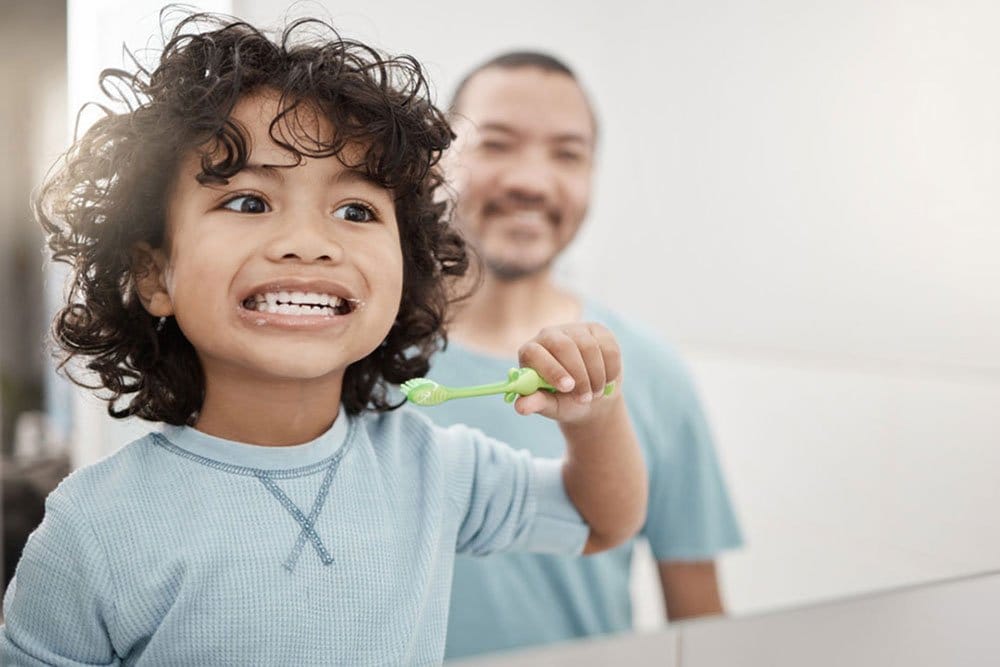What Is Fluoride and Why Is It Important for My Child?
 Fluoride is a chemical ion of fluorine, which is found naturally in rocks, soil, and water. In dentistry and pediatrics, fluoride is commonly used as a varnish on teeth to help strengthen the enamel and fight cavities.
Fluoride is a chemical ion of fluorine, which is found naturally in rocks, soil, and water. In dentistry and pediatrics, fluoride is commonly used as a varnish on teeth to help strengthen the enamel and fight cavities.
When you eat sugar and carbohydrate-dense foods, bacteria in plaque make acid that attacks tooth enamel. Fluoride can help prevent cavities by mixing with your saliva to coat your teeth.
There are several ways children can expose their teeth to fluoride.
- Community water (bottled water does not contain fluoride)
- Mouthwash for older children
- Toothpaste specifically listing fluoride as an ingredient
- Fluoride treatment from your dental or pediatric provider's office
Typically, it's recommended children start brushing their teeth with toothpaste containing fluoride from their first tooth onward.
For children under the age of 3, it's advised to use a small amount of toothpaste the size of a grain of rice. Children older than 3 should use toothpaste about the size of a pea. Children should brush their teeth twice a day for two minutes each time.
There has been misinformation about fluoride in the mass media over the years. Some people have claimed children will develop fluorosis from consuming water containing fluoride. Fluorosis is a staining on the teeth that happens when the fluoride level is very high. However, drinking water doesn't contain high enough levels of fluoride for this to happen.
Another common myth is that it's OK for cavities to form in baby teeth. Bacteria that cause cavities can harm the developing adult teeth.
Organizations such as the Centers for Disease Control & Prevention (CDC), American Academy of Pediatric Dentistry (AAPD), American Dental Association (ADA), American Medical Association (AMA) and World Health Organization (WHO) all agree that fluoride in water is safe for consumption. Since it's a natural element, adding it to water is a lot like adding vitamins to certain foods and drinks.
Parents should always help children brush their teeth to make sure they are using the right amount of toothpaste. Before teeth erupt, parents can use a washcloth to remove plaque buildup inside their child's mouth. Oral health lowers the risk of dental disease, tooth decay, oral cancer, face pain and other oral infections.
If you have more questions about fluoride or recommendations for your child's oral hygiene, make an appointment to speak with your dental professional or your primary pediatric care physician.